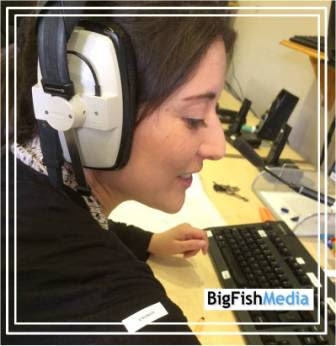We have a small school of sound engineers. They
interact daily with voices and with clients ensuring the highest quality audio
for voice over recordings. But what exactly does the sound engineer do?
They are the oil in the voiceover machine. They are the cogs that ensure that more than the tech stuff works. They are the gel in the voiceover salon of quality.
They are the oil in the voiceover machine. They are the cogs that ensure that more than the tech stuff works. They are the gel in the voiceover salon of quality.
A sound engineer is charged with endless abilities to ensure
that the audio for the client is professional and archives more than the client
needs.
They need to be technically skilled in operating the desk with all its various faders and combinations. They need to understand what needs the client has so that the best audio and performance works for them.
They also need to talk to the clients and voices to ensure that the narration is better than best. But what else would they need? Below is a list of a few things that make a sound engineers day.
They need to be technically skilled in operating the desk with all its various faders and combinations. They need to understand what needs the client has so that the best audio and performance works for them.
They also need to talk to the clients and voices to ensure that the narration is better than best. But what else would they need? Below is a list of a few things that make a sound engineers day.
1.
Headphones: here at Big Fish Media we use the
audio workhorse Beyerdynamic DT 100 Headphones. Closed back for no audio
seepage and reliable. We have them all over the office as well as in the recording
booth for tip top listening.
2.
Good chair: an essential item for a sound
engineer. They spend a long time recording and editing everything from commercials to video productions to IVR for well known multinational companies so a comfy
chair is key. In fact anything to make their work environment attuned to
working comfortable so they can achieve audio magic.
3.
Good ears and fast fingers: Sound engineers are always on the listen out for sound. From breaths to blips to mouth noises, they are the gatekeepers of good audio. They are the hum hunters hearing out any quirks or mishaps and always ensuring they can get a safety take. They have fast fingers, playing the desk and keyboards like a Beethoven of the Beats.
4.
Fast thinking: Recording audio and especially voiceovers requires a high level of concentration. Not only are our sound engineers listening out to what works and what doesn't for a client but also adapting fast to an ever changing situation. Clients often want to hear takes back and the engineer needs to be on it to assess which take is wanted and what part of that take fits well with the other take.
5. Director: Sound engineers need to be exceptionally engaged to have the confidence to stop a session, suggest pick ups and time checks with the client as well as ensuring the voice understands what the director and/or client wants.
If you would like to get in touch with our team of studio engineers making our voiceovers sound exceptional contact us today



